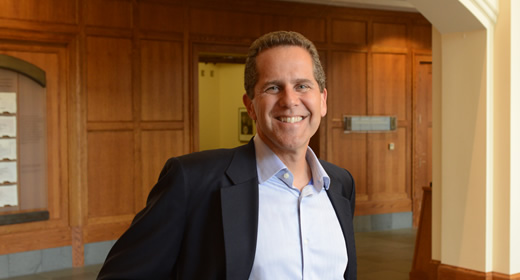
The University of Michigan’s Gerald R. Ford School of Public Policy has received a grant from the Bill & Melinda Gates Foundation to identify opportunities for how a central bank of the future might build a financial system that serves the needs of all, including the poor. The research will be conducted by faculty and students affiliated with the University’s Center on Finance, Law, and Policy.
Historically, central bank mandates have focused on setting monetary policy, overseeing the payment systems, and supervising financial institutions to promote stability, safety, and soundness in national and international contexts.
“Like everything else, our banking systems are becoming more digital, but we are leaving 1.7 billion adults behind who lack access to banking or mobile money accounts around the world. This research will explore what a more inclusive financial system needs to function and succeed and what role central banks might play,” said Michael S. Barr, Joan and Sanford Weill Dean of the Gerald R. Ford School of Public Policy and faculty director, Center on Finance, Law, and Policy.
“Central banks have influenced the shape and function of finance and financial markets for at least 350 years,” Dean Barr noted. “Our research will consider how they could strengthen their efforts to expand access to financial services among those living in impoverished areas.” Although central banks have been largely responsible for regulating and supervising traditional banks, new and emerging technology-based fintechs have significantly expanded the scope, nature and risks of globally interconnected financial systems.
The Bill & Melinda Gates Foundation grant ($935,000) will support a comprehensive assessment of central banks from especially lower income countries to evaluate what policies, interventions, technologies, and regulations could be used to create a more inclusive economy that works for all. Policy papers, convening of experts for roundtable discussions, and organization of conferences with international representation are expected to advance understanding and organize action around building inclusive economies for the poor. Research findings will help to identify opportunities for philanthropic investments to build the capacity of emerging and developing country central banks to promote broader financial and economic inclusion through monetary policy, payments systems oversight, and financial institution supervision.
Dean Barr will be joined in the research by Adrienne Harris. Harris is most recently the chief business development officer and general counsel for an insurance technology company and a former economic advisor to President Obama. Harris will join the Center on Finance, Law, and Policy as a Gates Foundation senior research fellow and the Ford School faculty as a Towsley Foundation policy maker in residence effective January 2019.
